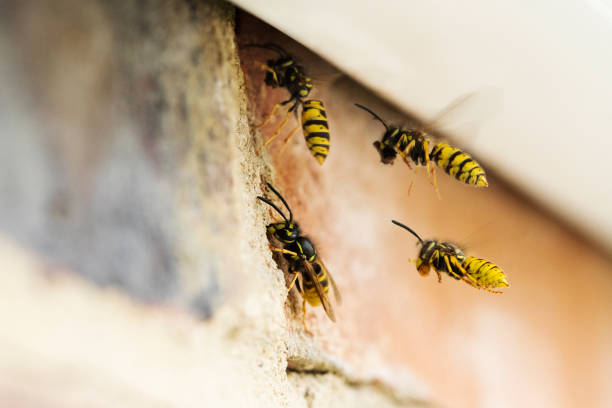Pests in properties are something we know about here at Belvoir. Nobody relishes the thought of pests in their home. But here at Belvoir we do on occasion support tenants with pest issues. They can cause a lot of damage if left untreated or the building is not secure enough to prevent entry in the first place. This blog is intended to advise you on the best course of action whether you’re a tenant or a landlord.
What Counts As A Pest?
Some Common Pest Found In Properties
Rats or mice
Vermin are nocturnal creatures so you will usually hear them at night if they are resident within your property, perhaps in the loft or in wall voids. Both can leave tell-tale signs that they are about; such as rice grain shaped droppings and smear marks where they make their trail.
As landlord you have a duty to prevent, as much as reasonably possible, to rectify any structural defects in rental properties that allow for vermin to gain access. This may be holes in pipe work and drains, holes in roof space and insecure floorboards to name a few problems.
As a tenant you have an obligation to keep the property clean as to not attract vermin inside. Make sure your rubbish is securely kept in the appropriate bins or containers. Keeping your garden as tidy as possible will also help prevent any pest invasions.
Squirrels
Squirrels for many are cute fury animals that we love to see jumping through trees and nibbling on nuts !
However, they can be particularly problematic and cause widespread damage. If they get into you loft space they can chew through wiring and disturb insulation. The repair bill can be hefty so it’s important to ensure that preventative measures are taken to restrict points of entry as much as possible. If there are tree branches that allow squirrels to easily clamber on to the roof for instance then get these cut back.
As long as a tenant is not seen to be encouraging squirrels, or any other wildlife for that matter, into the property then it lies with the landlord to address any structural issues and meet any repair bill…..so maybe consider what you are putting out in your garden ! 🥜🐿
Fleas
These pests can also be problematic and sometimes difficult to deal with due to their nature. Normally introduced by domestic pets fleas can be tricky to eradicate and usually take several treatments. A responsible tenant should get regular vet check-ups of their pet (if they are allowed a pet in the rental property) and get them treated at the first sign of any problems. It fleas are introduced by a tenant’s pet then it will be down to the tenant to cover the costs of any treatment(s) required, such as professional carpet cleaning or other fabric cleaning which harbours the fleas.
Wasps

Wasps can be a nuisance during the summer months when you’re enjoying the outdoors, trying to have a nice a picnic or a BBQ. They can get particularly aggressive without warning. A wasps’ nest can form quite quickly and all of a sudden you are faced with a swarm in your garden or near the roof. A pest controller would establish the onus of responsibility. The general rule of thumb is that if there is a structural defect with the property that encourages a nest then the landlord will be responsible and/or there was a nest at the beginning of the tenancy. If a nest appears and there is no apparent structural defect then the tenant will be responsible during their tenancy.
Bees
Bees are a protected species and must be dealt with by a professional bee-keeper. Tenants would be responsible to meet the bee keeper’s fee with the same stipulation as with wasps. There are honey bees and also tree bees with the latter usually creating a nest near the roof at certain times of the summer but usually disappear of their own accord.
For any of you with a interests or just want a little more info on bee do have a look at this quick read that was shared with me when we in fact had a bee issue at home.
https://www.herefordshirewt.org/blog/andrew-nixon/mining-bees
Bats

Again these creatures are protected and must be left alone. Apart from droppings they don’t usually cause any damage and keep themselves to themselves.
There are of course other types of pest but these are the most common.
Who is responsible for cost to eradicate ?
Pest control in rental property is generally the responsibility of the landlord, except in cases wherein the tenant is at fault for the infestation.
As a quick reference please consult the list below:
Vermin – Landlord, unless it can be proven that the fault lies due to tenant hygiene
Squirrels – Landlord, unless it is proven that the tenant is actively encouraging them into the property
Fleas – Tenant, providing they were not present at the start of tenancy and is evidenced
Wasps – Tenant, unless a nest was present at the start of tenancy and/or there is a structural defect with the property
Bees – Tenant, unless a nest was present at the start of tenancy and/or there is a structural defect with the property
Bats – must be left alone
Who Can Help?
If you are having a problem with pests you may be able to arrange a visit from the council. However, services do differ from council to council
In Cheshire West Council they have officers who can treat and remove a variety of pests.
Pest control | Cheshire West and Chester Council
In Cheshire East the service is different Pest control for your home (cheshireeast.gov.uk)
If you have any questions on this or other property management issues please call us on
Northwich 01606 783599
Congleton 01260 272737
The Belvoir Team Are Happy To Help









